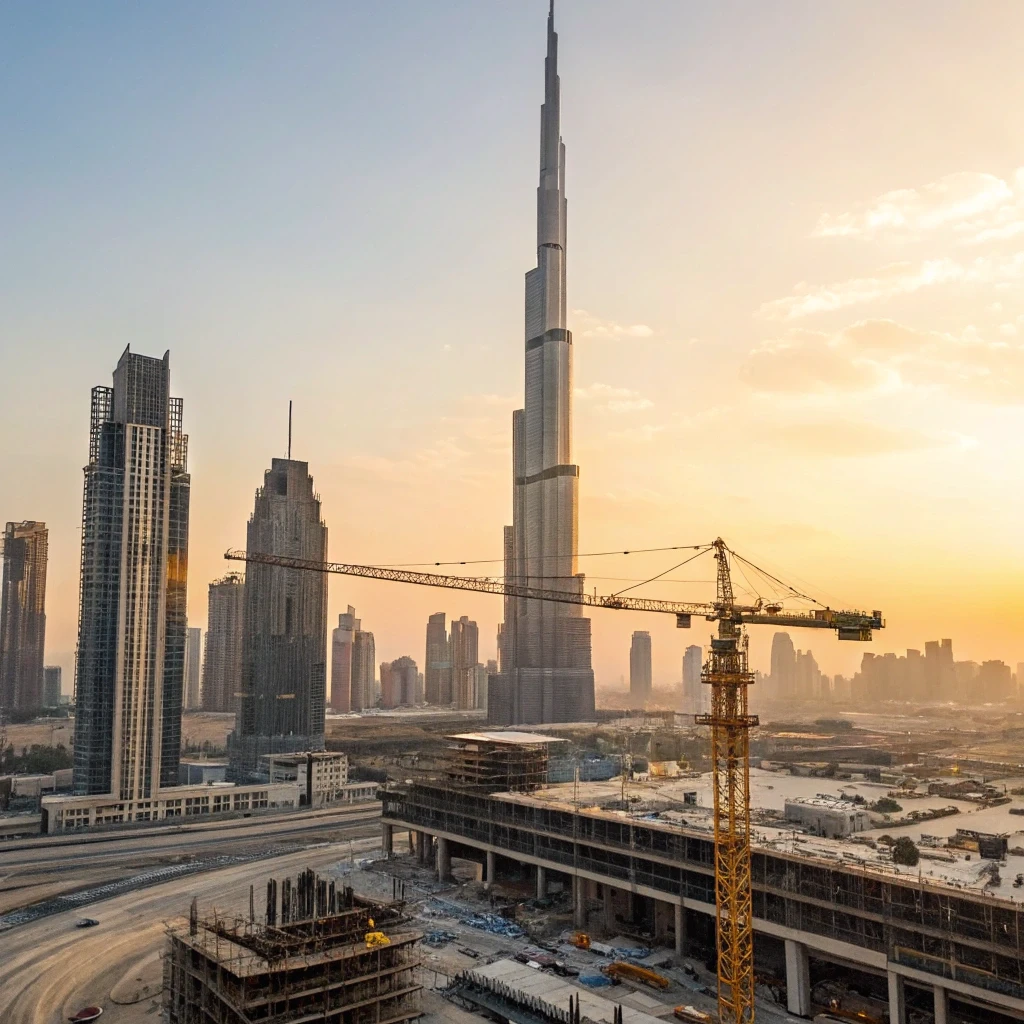Sevenx Properties in Dubai Real Estate Agency
Legal Steps Foreigners Must Know Before Buying Property in Dubai Freehold Areas

Dubai has become one of the most attractive destinations for global property investors. With its freehold laws, foreigners can now enjoy full ownership rights in designated areas, making it possible to buy villas, apartments, and even commercial spaces.
However, buying property in a new country comes with specific legal steps. For foreigners, understanding these steps is the difference between a smooth purchase and potential legal troubles later. This guide explains everything you need to know in clear, simple language, so you can confidently buy your dream property in Dubai.
Understanding Freehold Property in Dubai
Freehold property means you have complete ownership of the unit and the land it is built on. As a foreigner, you can buy freehold properties only in designated zones, such as Downtown Dubai, Business Bay, Dubai Marina, Palm Jumeirah, JVC, and Dubai Hills.
Unlike leasehold (where ownership is limited to 99 years), freehold ownership gives you full rights to sell, rent, or pass the property on to your heirs.
Step 1: Choose the Right Property and Community
Before diving into paperwork, you need to decide which freehold community suits your goals:
Investment-Focused Buyers often prefer high-yield areas like Business Bay or JVC.
Luxury Seekers are drawn to Palm Jumeirah and Downtown Dubai.
Families choose Dubai Hills or Arabian Ranches for schools and green spaces.
Choosing the right location ensures both lifestyle satisfaction and long-term ROI.
Step 2: Work with a Licensed Real Estate Agent
Foreigners should always deal with RERA-licensed brokers or agencies. These professionals are registered with the Dubai Land Department (DLD) and help:
Verify property documents
Negotiate fair terms
Protect buyers from fraudulent deals
Agencies like Seven X Properties ensure the process is transparent and fully compliant.
Step 3: Sign the Sale Agreement (MOU)
Once you’ve selected a property, the first legal step is signing the Memorandum of Understanding (MOU) with the seller.
The MOU clearly states:
Sale price
Payment terms
Responsibilities of both buyer and seller
At this stage, the buyer typically pays a 10% deposit to secure the deal.
Step 4: Obtain a No Objection Certificate (NOC)
Before the property is officially transferred, the developer issues an NOC confirming there are no outstanding service charges or disputes on the property. This step protects the buyer from hidden liabilities.
Step 5: Register the Property with Dubai Land Department (DLD)
The most critical step is registration with the DLD. The buyer must pay the DLD transfer fee (usually 4%), along with registration charges. Once registered, the buyer receives the title deed, which proves legal ownership.
For off-plan properties, an Oqood certificate is issued until the project is completed and handed over.
Step 6: Understand Financing Rules for Foreigners
Foreigners can apply for mortgages in Dubai, but eligibility depends on income and residency:
Residents can borrow up to 75–80% of property value.
Non-residents can usually borrow around 50–60%.
Mortgages are available from UAE and international banks with tenure up to 25 years.
This makes property ownership more accessible for middle-income foreign investors.
Step 7: Secure Your Golden Visa (Optional)
If your property purchase is worth AED 2 million or more, you may qualify for Dubai’s 10-year Golden Visa. This provides long-term residency for you, your spouse, children, and even household staff.
For many foreigners, this is an added benefit that makes property investment even more attractive.
Common Mistakes Foreign Buyers Should Avoid
Not Checking Freehold Eligibility – Some areas are leasehold, not freehold.
Skipping Developer Verification – Always confirm if the developer is RERA-approved.
Ignoring Extra Costs – DLD fees, service charges, and agent commissions can add up.
Not Reviewing the SPA Carefully – The Sales & Purchase Agreement must be read thoroughly to understand obligations.
Paying Outside Escrow – Always make payments into the official escrow account monitored by RERA.
Why Following Legal Steps Protects Your Investment
The Dubai real estate market is highly regulated, and every legal step is designed to protect both buyers and sellers. For foreigners, these steps ensure that ownership rights are safe, payments are secure, and the property can be rented, sold, or inherited without legal disputes.
By working with a trusted real estate partner, you can navigate the process easily and focus on what matters most—enjoying your investment and lifestyle in Dubai.
FAQs
1. Can foreigners buy property anywhere in Dubai?
No. Foreigners can buy only in designated freehold areas such as Dubai Marina, Palm Jumeirah, Business Bay, and Downtown.
2. Do I need to be a resident to buy property in Dubai?
No. Both residents and non-residents can buy property in Dubai’s freehold areas.
3. How much is the Dubai Land Department (DLD) fee?
The standard DLD transfer fee is 4% of the property value, paid at the time of registration.
4. What documents do I need to buy property as a foreigner?
You’ll need a valid passport, sale agreement, proof of payment, and mortgage approval if financing.
5. Can I get a mortgage as a non-resident foreigner?
Yes, but non-residents usually get financing up to 50–60% of property value.
6. What is Oqood registration?
Oqood is the system for registering off-plan properties with DLD. It protects buyers until the project is handed over.
Frequently Asked Questions
A refundable security deposit of 5% of the annual rent will be expected to be paid on Landlords acceptance of Tenants offer to lease. This security deposit which is held by the Landlord and returned at the end of the term dependant on the condition of the property. You will need to pay your rent up front for the period of lease in the way of post-dated cheques depending on the terms of your agreement. Other costs will include 5% of the annual rent payable to the agency for commission plus 5% VAT. You will also need to budget for the deposits required to be paid for connecting your utilities such as water, electricity, televisions etc. 5% VAT is payable on services provided and will be incurred on utility charges.
A refundable security deposit of 5% of the annual rent will be expected to be paid on Landlords acceptance of Tenants offer to lease. This security deposit which is held by the Landlord and returned at the end of the term dependant on the condition of the property. You will need to pay your rent up front for the period of lease in the way of post-dated cheques depending on the terms of your agreement. Other costs will include 5% of the annual rent payable to the agency for commission plus 5% VAT. You will also need to budget for the deposits required to be paid for connecting your utilities such as water, electricity, televisions etc. 5% VAT is payable on services provided and will be incurred on utility charges.
To rent a property in Dubai, you generally need the following documents:
- A valid Emirates ID or passport for identification
- A residency visa
- A tenancy contract is a legal agreement between the tenant and the landlord outlining the terms and conditions of the rental agreement.
- A security deposit, which is typically equivalent to one month's rent
- Cheques or proof of payment for rent and any other fees associated with the rental agreement
- Ejari
In Dubai, the responsibility for paying service fees for a property is determined by the rental agreement between the tenant and the landlord.
In most cases, the landlord is responsible for paying the service fees. However, in some cases, the rental agreement may state that the tenant is responsible for paying a portion or all of the service fees. This would depend on the specific terms of the rental agreement.
The length of the contract can vary, but it is typically for a minimum of one year. However, landlords and tenants can agree to a longer-term contract if they want.






